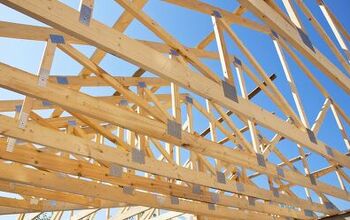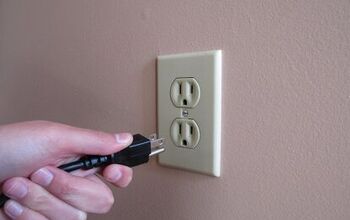What Happens If I Put Up A Fence Without A Permit?

What happens if you build a fence without procuring a building permit? This question largely depends on whether or not your particular project requires a permit. For instance, if you live in a rural area, the odds are that you won’t need one. However, living in a major metropolitan area makes the process more difficult and will almost always require you to obtain a building permit.
You can receive a fine if you build a fence without a permit if you live somewhere where it’s required. Not all neighborhoods, states, or counties require that you obtain a permit to build a fence. Some neighborhoods or counties may send you a “Stop Work” and will fine you $100 per day if you continue to build the fence.
Whether or not you need to secure a permit for your fence installation project will depend on a few factors including where you live, what type of fence you’re building and whether or not your neighborhood has a homeowner’s association.
We’ll outline these specific elements to hopefully shed some light on the subject and dive into further detail in regards to the consequences of building without a permit when one is required.
Do You Need Fence Installation or Repair Services?
Get free, zero-commitment quotes from pro contractors near you.

Do I Need A Permit To Build A Fence?
The consequences for building a fence without a permit will depend on whether or not your particular project requires one. However, if you ever find yourself questioning what may happen if you get caught without a building permit, you should just simply have one.
Where You Live Matters
As previously stated, building a fence in a major metro area such as Los Angeles or New York, will likely prove to be more challenging than more rural, open locations. In areas that are densely populated, your fence project will be subject to ordinances and zoning laws that take public safety and neighborhood design requirements into account.
Whereas, a farmer located in a rural area may have no trouble building a fence on their property without a permit. Regardless of your situation, you should always consult the building inspector’s office in your city to ensure that you’re following all the proper measures and obtaining a permit when needed.
The Fence You’re Building Makes A Difference
The particular location, materials and height of your fence may mean that it’s required to adhere to any number of regulations. If you have a homeowner’s association in your neighborhood, their purpose is to protect property values and maintain uniformity through specific established design standards.
Additionally, most municipalities impose precise zoning laws that regulate allowed fence height, materials used and sometimes even the style of fence if you live in an area that’s part of a historic district.
The type of fence you’re allowed to build will depend on your HOA and any established zoning laws in your area. For example, if you live in a residential setting it’s very unlikely that you’ll be permitted to install a barbed wire fence.
Consequences Of Building A Fence Without A Permit
If you’re worried about the possible consequences of building a fence without a permit, you should secure one regardless of the situation. Let’s examine the possible penalties of being caught without a permit.
- Refinancing problems. When it comes time to refinance your home, you’ll need to receive an appraisal. Each time an inspector approves any renovations to a home that comply with building codes, your tax assessor archives these changes. If non-permitted work was completed, your appraiser may not be able to meet the value of your home and you may be turned down for refinancing.
- Issues with home appraisal when selling. Non-permitted work affects your appraisal when selling your home in the same way it does when refinancing. If work hasn’t gone through the proper inspection process, your appraiser could place a lower overall value on your property.
- Buyers may turn down purchasing your home. It’s very possible for potential buyers to turn down purchasing your home if the integrity of non-permitted work is called into question. When a project is completed without a permit, the home buyers have no way of knowing if it was done correctly or if it’s up to code.
- Potential fines. Your home could be tagged for a fine every time an inspector catches work being completed without a permit. It’s not uncommon for neighbors to phone the permit office, file a complaint and result in a fine. Also, if the fine is overlooked and goes unpaid for too long, you could incur an additional fine of up to $100 a day, or more depending on your city or county.
In most cases, the cost of the potential penalties will far exceed the price of the original permit. Also, if caught without a permit, you may be required by the city to tear out your work or completely redo it.
Note: If the idea of dealing with your local government and presenting drawing plans sounds unappealing, you can hire a contractor. Although you’ll ultimately need to sign off on the permit, your builder can handle the entire permit process for you. However, if you choose to build the fence yourself, you will be in charge of pulling and paying for permits.
How To Obtain A Building Permit
The simplicity of obtaining a permit for your new fence will depend on where you live. Overall, the process isn’t particularly difficult.
- Start by calling your city hall or the office of your local building inspector to determine whether or not your project requires a permit. They will issue you all the necessary paperwork and educate you on the codes you need to be aware of. You’ll likely have to pay a fee to submit your approval application, so make sure that this is on your list of questions to ask!
- Have a surveyor survey your property lines and mark the outside boundaries. You’ll want to obtain a digital copy of the survey for your records. This step will help you to draw up the sketch of your fence and be useful in instances where your building inspector requires a copy.
- With your property survey, sketch out your fence perimeter in detail. Make sure you are abiding by any of the mandatory setbacks from the property line.
- Finalize the sketch or rendering of what your fence will look like along with material specifications and basic dimensions. Submit this document along with your application for approval to your local building inspector or city hall.
What If I Want To Hire A Professional?
Hiring a professional is also an option when it comes to building your fence. The best part about professionals is that their fees include everything you need:
- Materials
- Labor
- Tools to get the job done
- Building permit
Sometimes, their quote will also include clean up and haul away, but you will want to make sure that it does when you call for quotes. Some professionals will do this for an additional fee, around $75 to $150 depending on the size of the mess. Not to mention, you won’t need to deal with the permit, or the inspectors when you hire a professional.
Professionals Handle It All
If you want to build the fence yourself, then hey! We love that idea! After all, we urge homeowners to do their own work when they feel comfortable. However, if your fencing area is on unlevel ground, or the ground is too hard to dig posts in and you just don’t want to do it, then the professional will do all of that for you.
They can level your yard, install the fence posts, and deal with the inspectors who come to check out the job site. Plus, if anything is done wrong, it’s on the contractor, and not on you. So if there are fines or fees to pay, it comes from their company rather than out of your own pocket.
Related Questions
Can you obtain a permit after the work is already completed?
Yes, these types of permits are referred to as retrospective permits. This will require an inspection to take place and depending on the work that was completed, you may have to make modifications.
Is non-permitted work covered by my homeowner’s insurance?
In most circumstances, insurance agencies will cover work that is completed by a licensed contractor or the homeowner whether or not it was permitted.
Do I need to alert my neighbors that I’m building a fence?
While it’s always common courtesy to notify your neighbors that you’re building a new fence, you may not be required. As long as your fence complies with neighborhood regulations and is within your dedicated property lines, you can elect to not tell your neighbors. However, alerting them ahead of time can help prevent any future legal trouble if they want to try to dispute the install of your new fence.
Do You Need Fence Installation or Repair Services?
Get free, zero-commitment quotes from pro contractors near you.

Wrapping It Up
If you’re worried about the possible penalties of building a fence without a permit, you should contact your local related government office before you start.
They will be able to educate you on possible zoning laws and whether or not your particular project requires obtaining a building permit. Regardless, when in doubt always secure a building permit for your project to avoid any unnecessary consequences.
Related Guides

Jessica considers herself a home improvement and design enthusiast. She grew up surrounded by constant home improvement projects and owes most of what she knows to helping her dad renovate her childhood home. Being a Los Angeles resident, Jessica spends a lot of her time looking for her next DIY project and sharing her love for home design.
More by Jessica Stone
















![How To Reset A Whirlpool Cabrio Washer [In 5 Easy Steps!]](https://cdn-fastly.upgradedhome.com/media/2023/07/31/9076531/how-to-reset-a-whirlpool-cabrio-washer-in-5-easy-steps.jpg?size=350x220)










